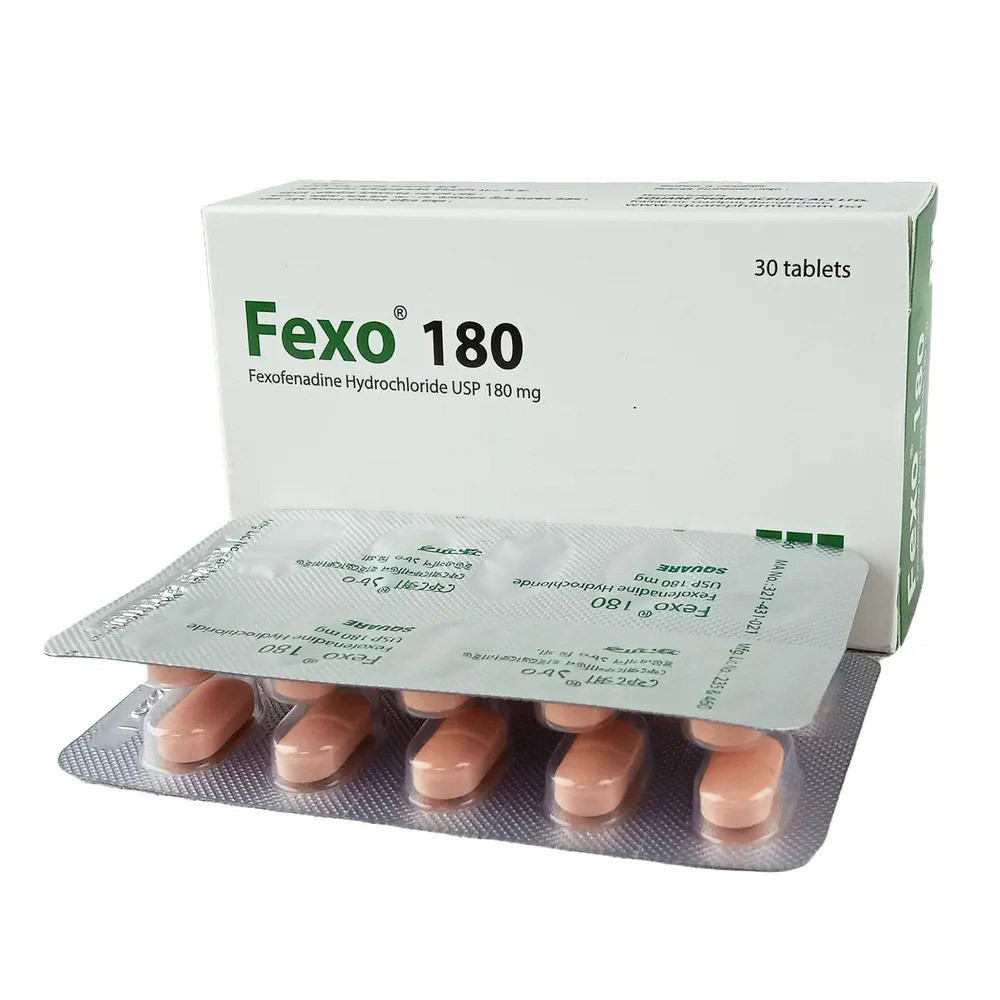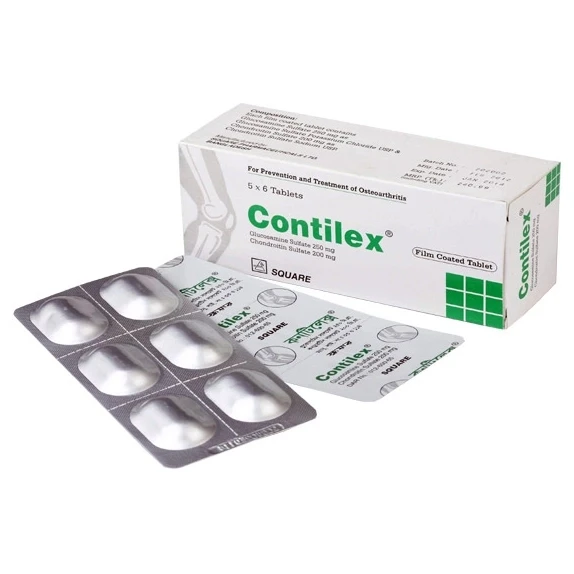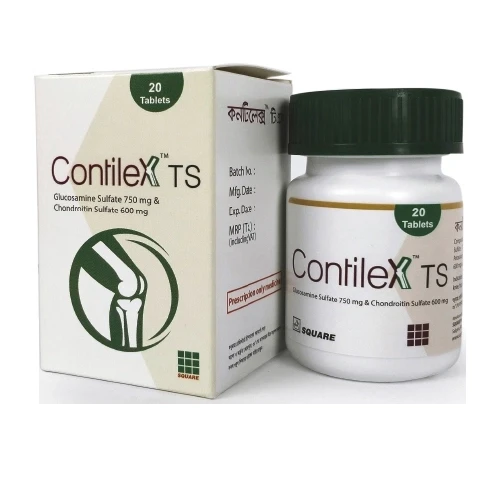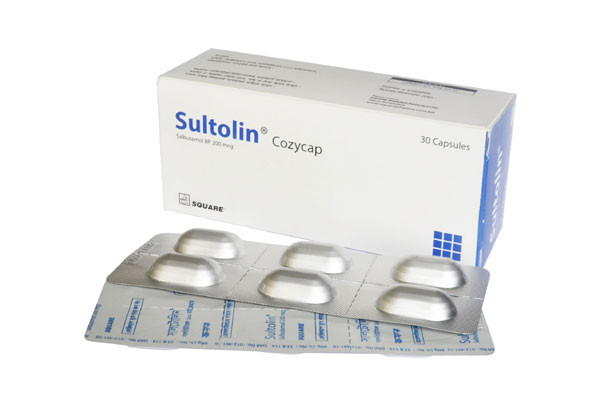

Ciprocin Powder for Suspension 60ml, Ciprofloxacin 250 mg/5 ml
(0
reviews)
Estimate Shipping Time:
1 Days
Inhouse product
Price
৳95.00
৳100.00
/100
-5%
Share
Top Selling Products
-
৳11.40
৳12.00 -
৳42.75
৳45.00 -
৳16.63
৳17.50 -
৳2.14
৳2.25
Reviews & Ratings
0
out of 5.0
(0
reviews)
There have been no reviews for this product yet.
Indications
Ciprocin is indicated for the treatment of single infection or mixed infections caused by two or more susceptible organisms. It can also be used for infections caused by organisms resistant to other antibiotics including Aminoglycosides, Penicillins and Cephalosporins.
As antibacterial concentrations of Ciprocin are obtained in serum and body tissues as well as in the urine following administration by mouth, Ciprocin has been suggested for use in the treatment of a wide range of infections caused by susceptible organisms including infections of the urinary, respiratory and gastrointestinal tracts, gonorrhoea and septicaemia. The extensive tissue penetration of Ciprocin combined with its enhanced antibacterial activity (including antipseudomonal activity), enables Ciprocin to be used alone (pending sensitivity results) or in combination with an Aminoglycoside or with beta lactam antibiotics for instance when severe neutropenia is present or with an antibiotic active against anaerobes where the presence of bacteroides fragilis is suspected. Ciprocin is indicated for the treatment of the following infections caused by sensitive bacteria:
As antibacterial concentrations of Ciprocin are obtained in serum and body tissues as well as in the urine following administration by mouth, Ciprocin has been suggested for use in the treatment of a wide range of infections caused by susceptible organisms including infections of the urinary, respiratory and gastrointestinal tracts, gonorrhoea and septicaemia. The extensive tissue penetration of Ciprocin combined with its enhanced antibacterial activity (including antipseudomonal activity), enables Ciprocin to be used alone (pending sensitivity results) or in combination with an Aminoglycoside or with beta lactam antibiotics for instance when severe neutropenia is present or with an antibiotic active against anaerobes where the presence of bacteroides fragilis is suspected. Ciprocin is indicated for the treatment of the following infections caused by sensitive bacteria:
- Severe systemic infections: e.g. septicaemia, bacteraemia, peritionitis, infections in immunosuppressed patients with haematological or solid tumors and in patients in intensive care unit with specific problems such as infected burns.
- Respiratory tract infections: Lobar and bronchopneumonia, acute and chronic bronchitis, acute exacerbation of cystic fibrosis, bronchiectasis, empyema.
- Urinary tract infections: Uncomplicated and complicated urethritis, cystitis, pyelonephritis, prostatitis, epididymitis.
- Skin and soft tissue infections: e.g. infected ulcers, wound infections, abscesses, cellulitis, otitis externa, erysipelas, infected burns.
- Gastro-intestinal infections: e.g. enteric fever, infective diarrhea.
- Infection of the biliary tract: e.g. cholangitis, cholecystitis, empyema of the gall bladder.
- Intra abdominal infections: e.g. peritonitis, intra abdominal abscesses.
- Bone and joint infection: Osteomyelitis, septic arthritis.
- Pelvic infections: e.g. salpingitis, endometritis, pelvic inflammatory diseases.
- Eye, ear, nose and throat infections: e.g. otitis media, sinusitis, mastoiditis, tonsillitis.
- Gonorrhoea: Including urethral, rectal and pharyngeal gonorrhoea caused by beta-lactamase producing organisms or organisms moderately sensitive to penicillin.
Pharmacology
Ciprofloxacin is a synthetic quinolone anti-infective agent. Ciprofloxacion has broad spectrum of activity. It is active against most gram negative aerobic bacteria including Enterobacteriaceae and Pseudomonas aeruginosa. Ciprofloxacin is also active against gram-positive aerobic bacteria including penicillinase producing, non penicillinase producing, and methicillin resistant staphylococci, although many strains of streptococci are relatively resistant to the drug. The bactericidal action of Ciprofloxacin results from interference with the enzyme DNA gyrase needed for the synthesis of bacterial DNA. Following oral administration it is rapidly and well absorbed from the G.I. tract. It is widely distributed into the body tissues and fluids. The half life is about 3.5 hours. About 30% to 50% of an oral dose of Ciprofloxacin is excreted in the urine within 24 hours as unchanged drug and biologically active metabolites.
Dosage
General dosage recommendations: The dosage of the Ciprofloxacin is determined by the severity and type of infection, the sensitivity of the causative organism(s) and the age, weight and renal function of the patient.
Adults: The dosage range for adults is 100-750 mg twice daily.
In infections of the lower and upper urinary tract (depending on severity): 250-500 mg twice daily.
In respiratory tract infections: 250-500mg twice daily for both upper and lower respiratory tract infections, depending on the severity. For the treatment of known Streptococcus pneumonia infection, the recommended dosage is 750 mg twice daily.
In gonorrhea: A single dose of 250 or 500 mg.
In the majority other infections: 500-750 mg twice daily should be administered.
Cystic fibrosis: In adults with pseudomonal infections of the lower respiratory tract , the normal dose is 750 mg twice daily. As the pharmacokinetics of Ciprofloxacin remain unchanged in patients with cystic fibrosis, the low body weight of these patients would be fallen into consideration when determining dosage.
Impaired renal function: Dosage adjustment is not usually required except in patients with several renal impairment. (serum creatinine >265 micro mol/l or creatinine clearance <20 ml/minute). If adjustment is necessary, this may be achieved by reducing the total daily dose by half, although monitoring of drug serum levels provide the most reliable basis for dose adjustment.
Elderly: Although higher Ciprofloxacin serum levels are found in the elderly, no adjustment of dosage is necessary.
Adeloscents and children: As with other drugs in its class, Ciprofloxacin has been shown to cause arthropathy in weight bearing joints of immature animals. Although the relevance of this to man is unknown, its use in children, growing children and growing adolescents is not recommended. However, where the benefit of using Ciprofloxacin is considered to outweigh the potential risk, the dosage should be 7.5-15 mg/kg/day depending upon the severity of infection, administered in two divided doses.
Duration of treatment: The duration of treatment depends upon the severity of infection, clinical response and bacteriological findings.
For acute infections: The usual treatment period is 5 to 10 days with Ciprofloxacin tablets. Generally treatment should be continued for three days after the signs and symptoms of the infection have disappeared.
Extended-release tablet:
Adults: The dosage range for adults is 100-750 mg twice daily.
In infections of the lower and upper urinary tract (depending on severity): 250-500 mg twice daily.
In respiratory tract infections: 250-500mg twice daily for both upper and lower respiratory tract infections, depending on the severity. For the treatment of known Streptococcus pneumonia infection, the recommended dosage is 750 mg twice daily.
In gonorrhea: A single dose of 250 or 500 mg.
In the majority other infections: 500-750 mg twice daily should be administered.
Cystic fibrosis: In adults with pseudomonal infections of the lower respiratory tract , the normal dose is 750 mg twice daily. As the pharmacokinetics of Ciprofloxacin remain unchanged in patients with cystic fibrosis, the low body weight of these patients would be fallen into consideration when determining dosage.
Impaired renal function: Dosage adjustment is not usually required except in patients with several renal impairment. (serum creatinine >265 micro mol/l or creatinine clearance <20 ml/minute). If adjustment is necessary, this may be achieved by reducing the total daily dose by half, although monitoring of drug serum levels provide the most reliable basis for dose adjustment.
Elderly: Although higher Ciprofloxacin serum levels are found in the elderly, no adjustment of dosage is necessary.
Adeloscents and children: As with other drugs in its class, Ciprofloxacin has been shown to cause arthropathy in weight bearing joints of immature animals. Although the relevance of this to man is unknown, its use in children, growing children and growing adolescents is not recommended. However, where the benefit of using Ciprofloxacin is considered to outweigh the potential risk, the dosage should be 7.5-15 mg/kg/day depending upon the severity of infection, administered in two divided doses.
Duration of treatment: The duration of treatment depends upon the severity of infection, clinical response and bacteriological findings.
For acute infections: The usual treatment period is 5 to 10 days with Ciprofloxacin tablets. Generally treatment should be continued for three days after the signs and symptoms of the infection have disappeared.
Extended-release tablet:
- In uncomplicated urinary tract infection (acute cystitis), the recommended dose of extended-release tablet is 1000 mg tablet once daily for three days.
- Urinary Tract Infection: Mild to Moderate: 200 mg 12 hourly for 7-14 days; Severe or Complicated: 400 mg 12 hourly for 7-14 days
- Lower Respiratory Tract infection: Mild to Moderate: 400 mg 12 hourly for 7-14 days; Severe or Complicated: 400 mg 8 hourly for 7-14 days
- Nosocomial Pneumonia: Mild/Moderate/Severe: 400 mg 8 hourly for 10-14 days
- Skin and Skin Structure: Mild to Moderate: 400 mg 12 hourly for 7-14 days; Severe or Complicated: 400 mg 8 hourly for 7-14 days
- Bone and Joint Infection: Mild to Moderate: 400 mg 12 hourly for more than 4-6 weeks; Severe/Complicated: 400 mg 8 hourly for more than 4-6weeks
- Intraabdominal (Acute abdomen): Complicated: 400 mg 12 hourly for 7-14 days
- Acute Sinusitis: Mild/Moderate: 400 mg 12 hourly for 10 days
- Chronic Bacterial Prostatitis: Mild/Moderate: 400 mg 12 hourly for 28 Days.
Administration
Instruction for the use of Ciprofloxacin IV infusion-
- Check the bag for minute leaks by squeezing the inner bag firmly. If leaks are found, or if seal is not intact, discard the solution.
- Do not use if the solution is cloudy or a precipitate is present.
- Do not use flexible bags in series connections.
- Close flow control clamp of administration set.
- Remove cover from port at bottom of bag.
- Insert piercing pin of administration set into port with a twisting motion until the pin is firmly seated.
- Suspend bag from hanger.
- Squeeze and release drip chamber to establish proper fluid level in chamber during infusion of Ciprofloxacin IV infusion.
- Open flow control clamp to expel air from set.Close clamp.
- Regulate rate of administration with flow control clamp.
Interaction
Concurrent administration of Ciprocin should be avoided with Magnesium or Aluminum containing antacids or sucralfate or with other products containing Calcium, Iron or Zinc. These products may be taken two hours after or six hours before Ciprocin. Ciprocin should not be taken concurrently with milk or other dairy products, since absorption of Ciprocin may be significantly reduced. Dietary calcium is a part of a meal, however, does not significantly affect the absorption of Ciprocin.
Contraindications
Patients with a history of hypersensitivity to Ciprofloxacin or to other quinolones.
Side Effects
Gastrointestinal disturbances e.g. nausea, diarrhoea, vomiting, dyspepsia, abdominal pain. Disturbances of the central nervous system e.g. headache, dizziness, tiredness, confusion, convulsion & risk of retinal detachment. Hypersensitivity reactions e.g. skin rash (very rarely Stevens-Johnson syndrome and toxic epidermal necrolysis), pruritus and possible systemic reactions. The other less reported reactions are joint pain, mild photosensitivity and transient increase in liver enzymes (particularly in patients with previous liver damage), serum bilirubin, urea or creatinine levels. Risk of hypoglycemia & mental health adverse effects.
Pregnancy & Lactation
Reproduction studies performed in mice, rats and rabbits using parenteral and oral administration did not reveal any evidence of teratogenicity, impairment of fertility or impairment of peri/post natal development. However as with other quinolones, Ciprofloxacin has been shown to cause arthropathy in immature animals and therefore its use during pregnancy is not recommended. Studies in rats have indicated that Ciprofloxacin is secreted in milk, administration to nursing mothers is thus not recommended.
Precautions & Warnings
It should be used with caution in patients with suspected or known CNS disorders such as arteriosclerosis or epilepsy or other factors which predispose to seizures and convulsion.
- Ciprocin may be taken with or without meals and to drink fluids liberally.
- Concurrent administration of Ciprocin should be avoided with magnesium / aluminium antacids, or sucralfate or with other products containing calcium, iron and zinc. These products may be taken two hours after or six hours before Ciprocin.
- Ciprocin should not be taken concurrently with milk or yogurt alone, since absorption of Ciprocin may be significantly reduced. Dietary calcium is a part of a meal, however, does not significantly affect the Ciprocin absorption.
Use in Special Populations
Although effective in clinical trials, Ciprocin is not a drug of first choice in pediatric population.
Overdose Effects
Overdose following Ciprocin administration may lead to seizures, hallucinations, confusion, abdominal discomfort, renal and hepatic impairment as well as crystalluria, haematuria, & reversible renal toxicity.
Therapeutic Class
4-Quinolone preparations, Anti-diarrhoeal Antimicrobial drugs
Storage Conditions
Keep below 30°C temperature, protected from light & moisture. Keep out of the reach of children.
Frequently Bought Products
Ace IV Infusion 100ml, Paracetamol 10 mg/ml
৳142.50
৳150.00
Perkirol Tablet, Ropinirole 0.25 mg
৳1.90
৳2.00
Anclog Tablet , Clopidogrel Bisulphate 75 mg
৳11.40
৳12.00
Methyphen Tablet, Methylphenidate Hydrochloride 10 mg
৳16.15
৳17.00
Fonidel Ophthalmic Solution Fondaparinux Sodium 2.5 mg/0.5 ml
৳760.00
৳800.00
Rapiflo Capsule, Silodosin 4 mg
৳11.40
৳12.00
Product Queries (0)
Login Or Registerto submit your questions to seller
Other Questions
No none asked to seller yet
Top Selling Products
-
৳11.40
৳12.00 -
৳42.75
৳45.00 -
৳16.63
৳17.50 -
৳2.14
৳2.25














![Minicon Tablet (28's) Norgestrel, [For breastfeeding mother] 0.075 mg](https://www.skpharma.com.bd/public/uploads/all/U1B8sWhXEYYkzK4jS3WjbqXGaO3OBmdGOHYSS8H6.jpg)


